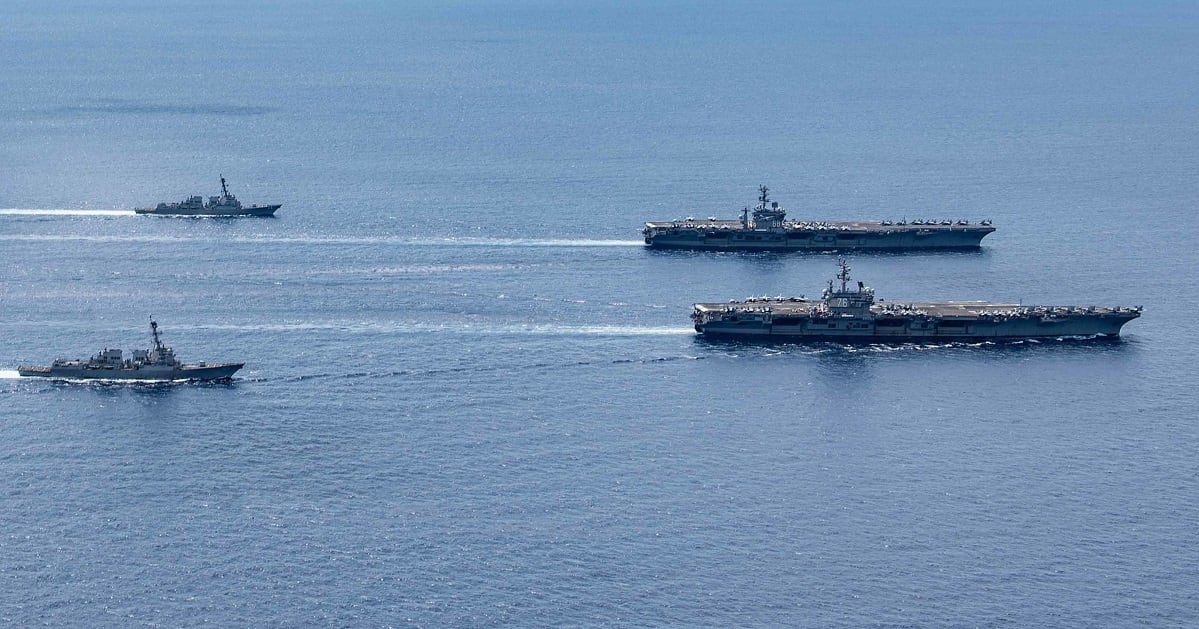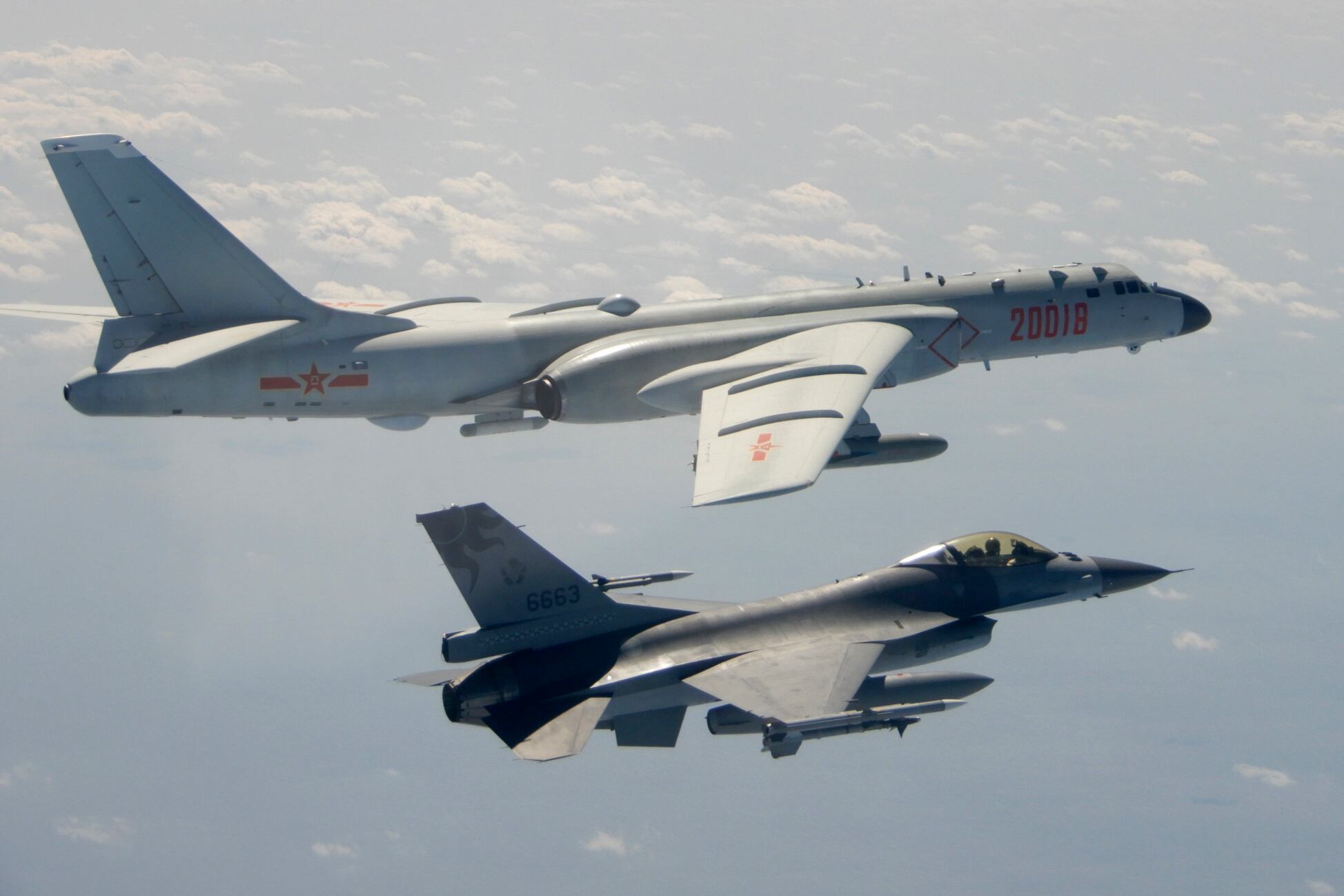TAIPEI, Taiwan — A day after Defense Secretary Mark Esper said the U.S. remains steadfast in its support of Taiwan, that nation’s foreign minister said China appears to be a stepping up of its threat to use force to take control of the island.
China is sending military planes near Taiwan with increasing frequency and and have become “virtually a daily occurrence,” Joseph Wu told reporters, adding that such flights are more frequent than reported in the media.
Along with Chinese military exercises simulating an attack on Taiwan, the flights by China are causing major concern for Taiwan's government, Wu said.
“What it is doing now is inceasingly preparing to use force to resolve the Taiwan problem,” Wu said.
RELATED

Esper, speaking Tuesday at an event hosted by the International Institute for Strategic Studies, said America remains steadfast in its support of Taiwan.
The Donald Trump administration “remains committed” to Taiwan, even as the actions from Beijing become “more aggressive” toward its neighbor, he said.
“We’ve seen [China] build up their military, we’ve seen them be more assertive, they got hundreds, if not over a thousand, missiles aimed at Taiwan. And we’ve seen President [Xi Jinping] and his party really take this to a new level,” Esper said. “So we remain committed to regional peace and security. We will live up to our commitments to Taiwan, which is all in the interest of a secure and stable region, if you will.”
He said that commitment includes potential future arms sales, the most recent of which led to China announcing it would sanction American defense company Lockheed Martin.
The secretary also said he hoped to travel to China before the end of the year “in order to enhance cooperation on areas of common interest, establish the systems necessary for crisis communications, and reinforce our intentions to openly compete in the international system in which we all belong.”
China claims the self-ruling island democracy as its own territory and threatens to use the People's Liberation Army to bring it under its control. The sides split in a civil war in 1949 when Chiang Kai-shek's Nationalists fled to the former Japanese colony as the Communist Party took control in mainland China.
Beijing has cut ties with the island’s government since Taiwan elected independence-leaning President Tsai Ing-wen in 2016 and has sought to isolate it diplomatically while raising the military threat. Despite that, Tsai was reelected this year by a wide margin.
Wu said China appeared to have grown in confidence following its crackdown on opposition voices in the former British colony of Hong Kong, facilitated by the national legislature's passage of a sweeping security law.
“If international society does not give China a sufficiently clear signal, I believe China will take it that international society will not impede it in doing other things,” Wu said. “This is what we are extremely worried about.”
Wu stressed the need for coordination with allies such as Japan and the U.S., neither of which has official diplomatic ties with Taiwan but which maintain close relations. U.S. law mandates that Washington ensure the island can maintain a credible defense and treat all threats against the island as matters of grave concern.
Another ally in the region looking nervously toward Washington is Taiwan. The island nation has long been in Beijing’s crosshairs, but China’s recent crackdown in Hong Kong has led to speculation that it may look to move on Taiwan more quickly than previously expected.
Support among Taiwanese for political unification with China has long been weak and has fallen further following the crackdown in Hong Kong. That comes as Chinese Communist Party leader and President Xi Jinping pursues an increasingly assertive foreign policy, leading to speculation he may attempt a military confrontation in the region.
Aaron Mehta was deputy editor and senior Pentagon correspondent for Defense News, covering policy, strategy and acquisition at the highest levels of the Defense Department and its international partners.





